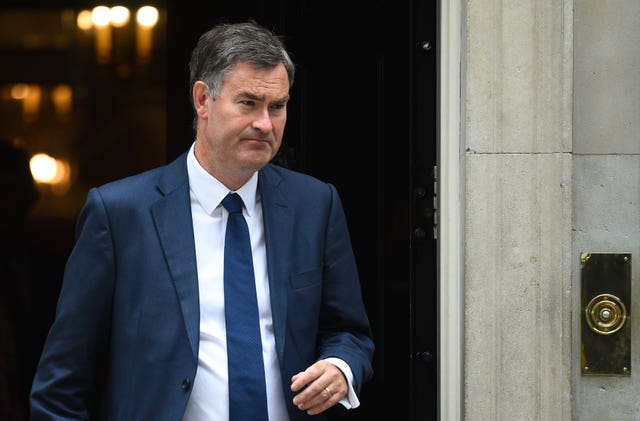Shabana Mahmoud told the annual judges’ dinner at Mansion House that when she was appointed lord chancellor in the summer, prisons were “weeks away from being completely depleted” and as a result she decided to release some prisoners more early.
About 1,100 prisoners were due to be released in a second wave of early releases that began on Tuesday under the government’s policy to free up prison places.
She told those present: “Prisons were not just in crisis, they were about to collapse. We are weeks away from completely running out of space.”

Referring to the unrest across Britain following July’s knife attacks in Southport, Ms Mahmoud said the “need for this decision” on early release “became soon apparent”, before adding: “At some point prison places , remaining with elderly men, the property fell by double digits.”
On Tuesday, Number 10 said the Prime Minister “shared the public’s anger” at the images of prisoners being released early.
Sir Keir Starmer’s spokesman said: “The Prime Minister shares the public’s anger at these scenes and thinks it is shocking that any government would ever inherit the crisis this government has when it comes to our prisons.
“But just to be clear, we had no choice but to act. If we hadn’t acted, we would have faced complete system paralysis.”
He said it marked the “second and final” release of prisoners under the government’s scheme.
Some prisoners, such as Daniel Dowling-Brookes, felt the exact opposite of the Prime Minister.
Dowling-Brookes told journalists covering the early prison releases “with a big Keir Starmer success” as he celebrated his newfound freedom with his friends, mother and sister, who picked him up in a convoy of white Bentleys and black Mercedes G- Wagon outside HMP Swaleside in Kent.
The 29-year-old told reporters he had been jailed for seven years for the kidnapping and grievous bodily harm of a man who owed money to a friend and was leaving prison seven weeks earlier than planned.
He said the first thing he would do was “go to McDonald’s, go to my hostel and follow all the rules.”

Meanwhile, the government plans to increase the maximum period offenders can spend under house arrest from six months to 12 months, Mahmoud told MPs in the House of Commons yesterday.
She also said she would also address the growing number of recalls — the return to prison of those released on license or parole who violate probation rules.
She said: “Later this month I intend to overhaul the recall review process with a risk assessment so that lower risk cases can be considered for re-release after being recalled to prison for two to three months, where their further detention is no longer necessary for the protection of the public.’
The government will also “fast track” the deportation of foreign nationals, as opposed to locking them up in the UK, she said.
The Minister for Justice has also launched a sentencing review which will look at giving offenders more non-custodial sentences.
The tags are already used to supervise and monitor offenders serving sentences outside prison, but the review will consider the introduction of emerging technologies used in other countries, Ms Mahmoud said.
The prison population is increasing by 4,500 each year and the government has committed to creating 14,000 additional prison places.

David Gauke, a former justice minister who has argued there is a strong case for scrapping most sentences of six months or less, will chair the review panel.
He wrote that “the capacity crisis in our prisons means that at the very least we have no choice but to stop the increase in prison numbers,” in an article in the New Statesman on Tuesday.
As part of the review, the government will look to foreign jurisdictions, such as Texas, where authorities have used good behavior credits, for ideas.
Non-prison punishments can include the use of wristwatches or apps that “prompt” offenders to ask whether they have complied with license conditions, in addition to sobriety tags or house arrest curfews.
Community alternatives and fines to custodial sentences will also be considered, as will the impact of short custodial sentences.
The review will also look at whether more can be done to tackle the many crimes and offenses committed against women and girls by designing sentences that reflect the gravity of the offence.
